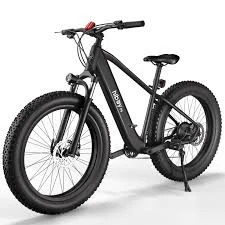10 月 . 22, 2024 01:44 Back to list
how to install mountain bike derailleur
How to Install a Mountain Bike Derailleur
Installing a derailleur on your mountain bike is a crucial skill for any cyclist, as it plays a vital role in ensuring smooth gear shifts. Whether you're upgrading an old derailleur or replacing a broken one, this guide will walk you through the process step by step.
Tools and Materials Needed
Before you begin, make sure you have the following tools - A 5mm Allen wrench - A Phillips screwdriver - Cable cutters - A new derailleur - New derailleur cable (if needed) - Chain lubricant
Step 1 Remove the Old Derailleur
Start by shifting your bike into the highest gear (smallest cog). This will relieve tension on the derailleur. Use the Allen wrench to unscrew the derailleur from the derailleur hanger, and carefully disconnect the derailleur cable by loosening the bolt with the Phillips screwdriver. If you're replacing the cable as well, cut the old cable using the cable cutters.
Step 2 Install the New Derailleur
Take your new derailleur and attach it to the derailleur hanger. Ensure it aligns properly with the gear system. Once aligned, use the Allen wrench to tighten the screw securely. It’s important to ensure that the derailleur is not tilted or misaligned, as this can affect shifting performance.
how to install mountain bike derailleur

Step 3 Connect the Derailleur Cable
Feed the new derailleur cable through the cable housing and into the derailleur's cable anchor. Pull the cable tight, then tighten the bolt to secure it in place. Make sure there's no slack but avoid over-tightening, which can damage the cable or derailleur.
Step 4 Adjust the Limits
Every derailleur comes with limit screws (often labeled 'H' for high and 'L' for low). Use a Phillips screwdriver to adjust these screws. The high limit screw controls how far the derailleur can move towards the smallest cog, preventing the chain from falling off. The low limit screw does the same for the largest cog. Shift through the gears to test, making fine adjustments as necessary.
Step 5 Testing and Fine-Tuning
Once the derailleur is installed and adjusted, it’s time to test it. Shift through all gears while pedaling the bike to ensure the chain moves smoothly. If the chain hesitates or jumps, you may need to adjust the cable tension. This can be done by either turning the barrel adjuster at the derailleur or at the shifter.
Conclusion
Installing a mountain bike derailleur might seem daunting at first, but with the right tools and a bit of patience, you can successfully complete the task. Regular maintenance and correct installation will ensure your bike operates at its best, providing you with smooth and reliable rides on all your adventures. Happy cycling!
-
The Main Application Scenarios of Mountain Bike
NewsOct.29,2024
-
Suggestions for Selecting and Maintaining Mountain Bike
NewsOct.29,2024
-
Characteristics of Kids Balance Bike
NewsOct.29,2024
-
Characteristics of Baby Stroller
NewsOct.29,2024
-
Characteristics and Advantages of Mountain Bike
NewsOct.29,2024
-
Baby Stroller Purchasing Suggestions
NewsOct.29,2024
-
Suggestions for Purchasing Kids Balance Bike
NewsOct.09,2024

